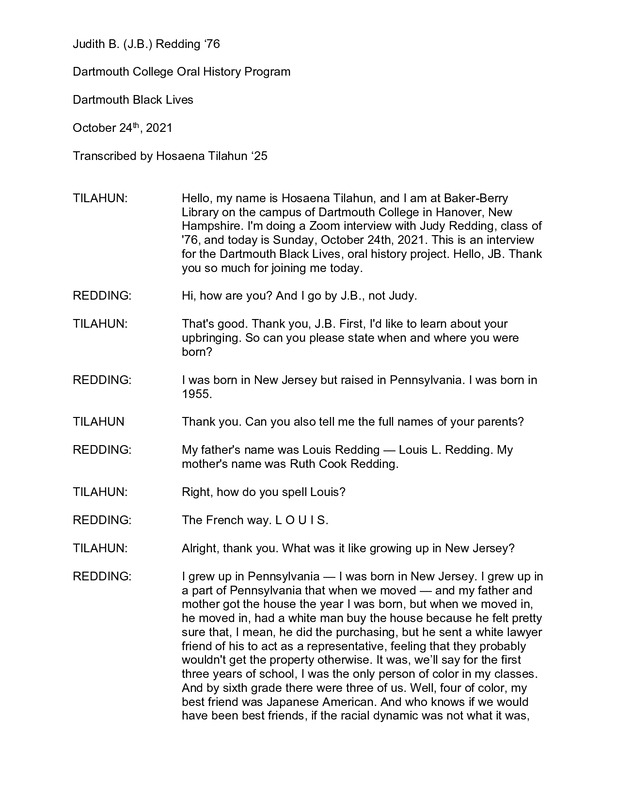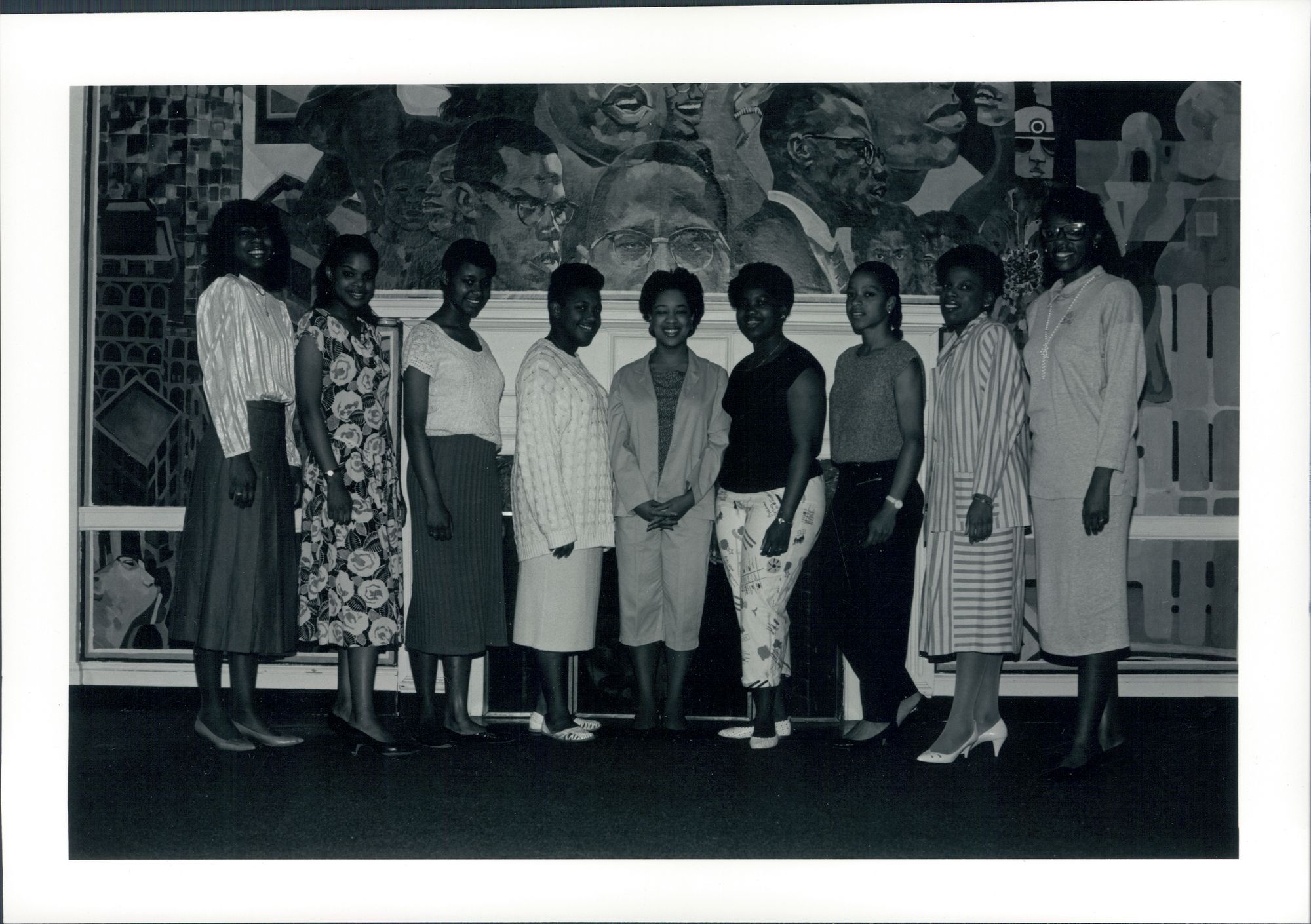A Conversation with J.B. Redding ('76)
On October 24th, 2021, I had the privilege of interviewing J.B. Redding for the Dartmouth Black Lives Oral History Project. Redding contributed tremendously to community building and Black activism on campus. Coming of age during a time of Black Consciousness motivated her participation in Dartmouth's Afro-American (Afro-Am) Society, an organization dedicated to improving the livability of Black students. As a regular newsletter editor for the Afro-Am and leader within the Committee on Student Life, Redding witnessed the holes in the administration's promises of gender and racial inclusivity.
In November 1974, after taking a sociology course on systemic racism, J.B. Redding was inspired to uncover how Dartmouth, the secluded "Ivy League school in the woods," institutionally upheld racism. With classmates Monica Hargrove ('76) and Eileen Cave ('76) (and students who wished to remain anonymous), Redding wrote and disseminated the report, "Institutional Racism and Student Life at Dartmouth" (ubiquitously known known as "The Redding Report" among faculty and administration). The authors' main goal was to increase awareness of discriminatory practices in academic, social, and athletic spaces.
Redding's actions represent the broader effort that Black Alumni funneled into equitable initiatives at this predominately white institution. With virtually no Black community in the Upper Valley, Black students relied on their collective power to develop nontraditional resources (Shabazz Center for Intellectual Inquiry, Afro-Am Newsletter, Black Praxis Magazine) as an alternative to the indifferent responses from the College. J.B. Redding's testimony highlights some of these creative efforts and her life before and after attending Dartmouth College.



